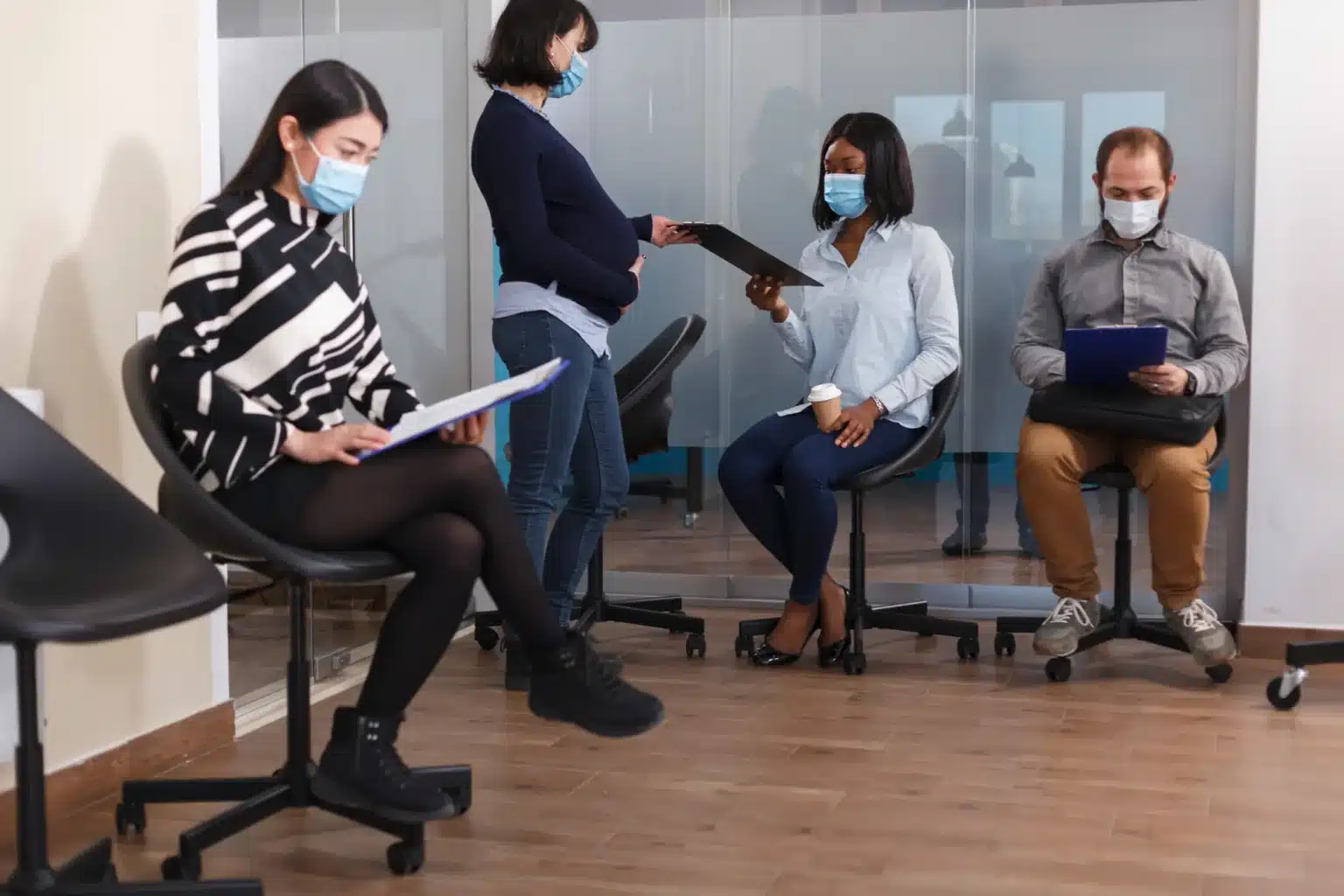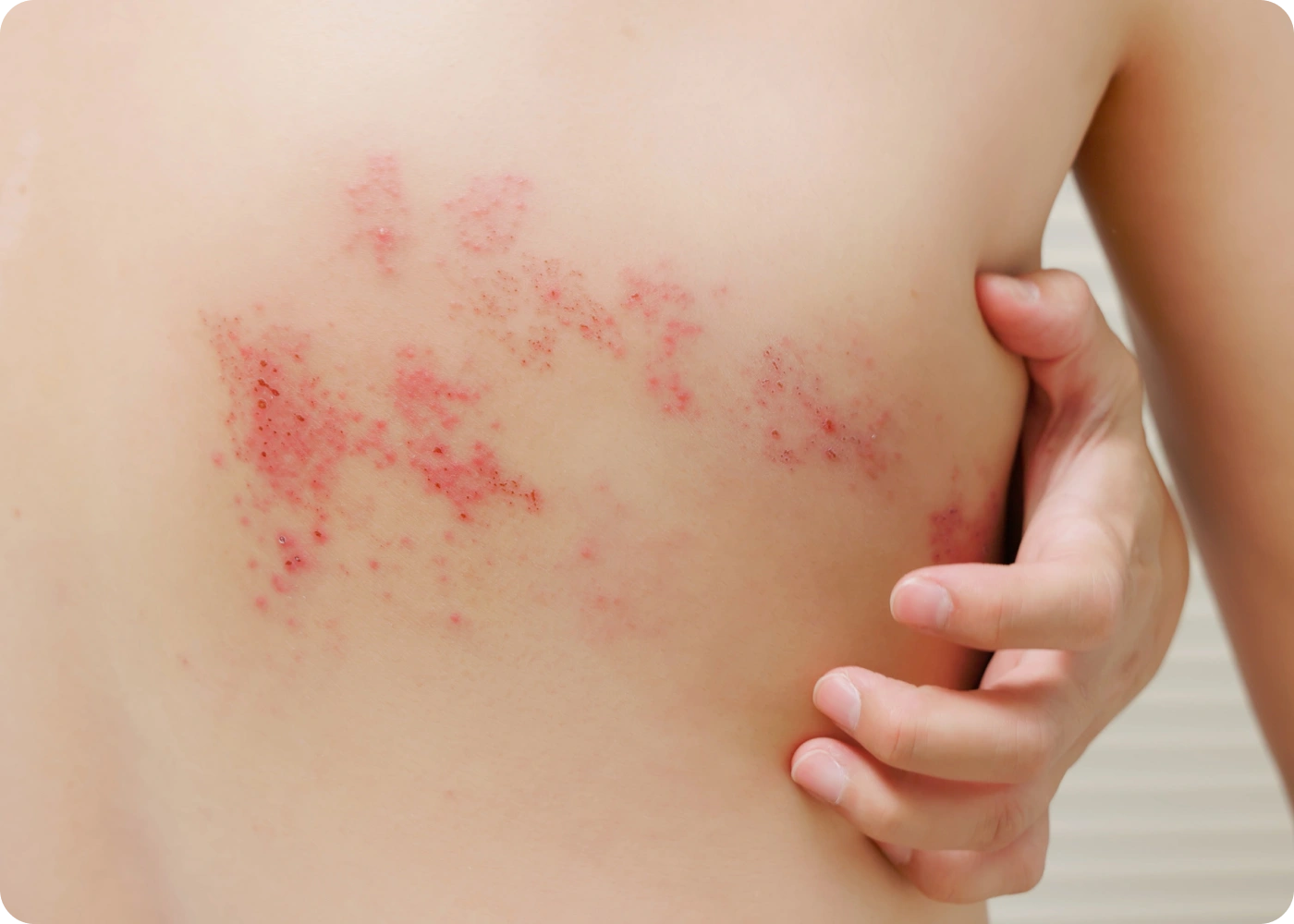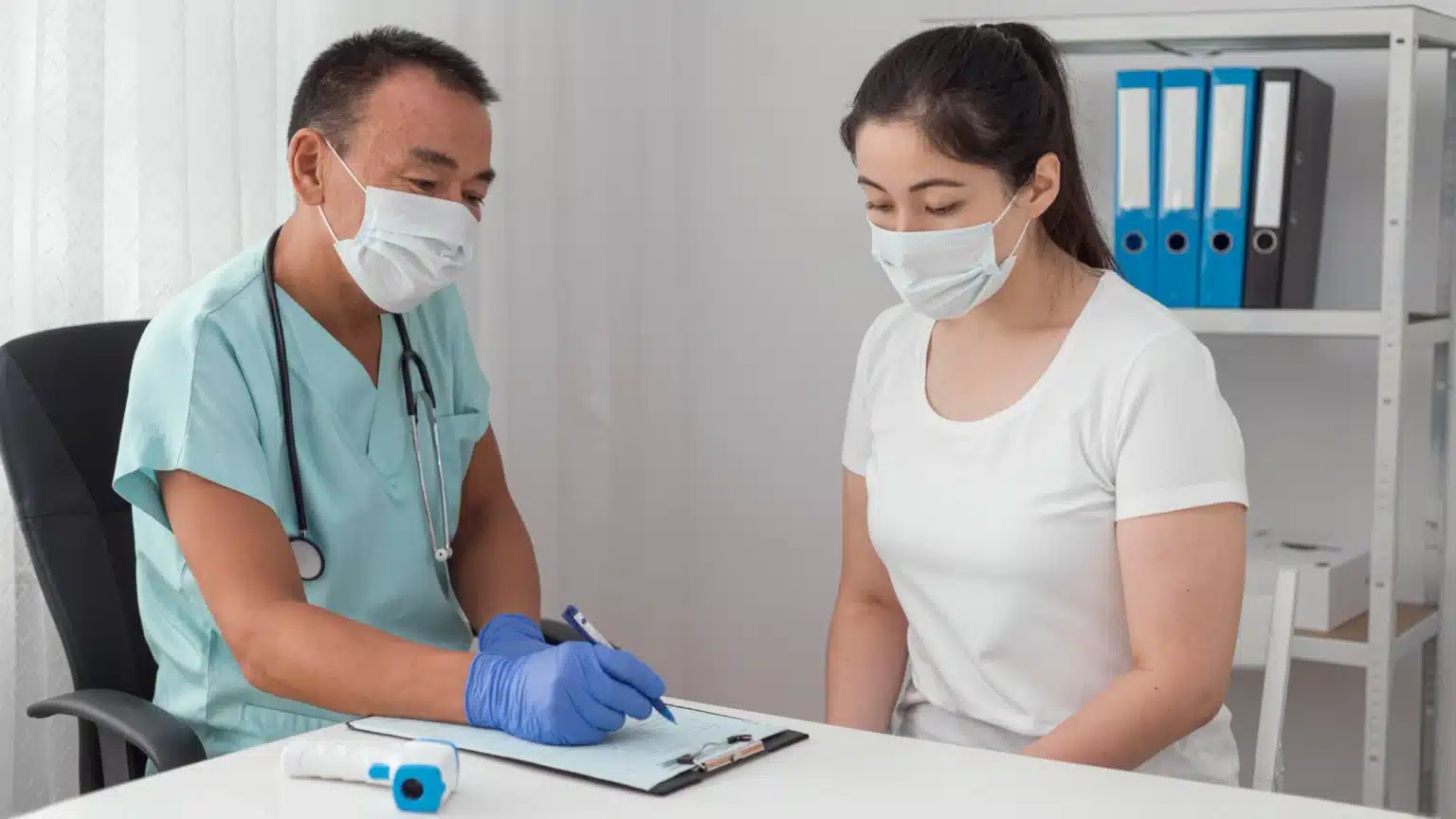
Shingles in Younger Adults: What You Need to Know
While shingles is commonly associated with older adults, younger adults can also develop the condition, particularly if they have weakened immune systems. Shingles, or herpes
Learn more about:
Recommended for: Adults over 50, those with weakened immune systems, and anyone with a history of chickenpox to help prevent shingles and its painful complications.
Disease prevented: Shingles
Price:
₱10,000.00
The Shingles Vaccine is designed to protect against shingles, a painful skin rash caused by the reactivation of the varicella-zoster virus. This vaccine helps prevent complications like postherpetic neuralgia, a long-lasting nerve pain that can follow shingles. By reducing the risk of shingles and its associated discomfort, it supports healthier aging and improved quality of life for adults, especially those 50 and older.


₱12,000.00
The Shingles Vaccine is designed to protect against shingles, a painful skin rash caused by the reactivation of the varicella-zoster virus. This vaccine helps prevent complications like postherpetic neuralgia, a long-lasting nerve pain that can follow shingles. By reducing the risk of shingles and its associated discomfort, it supports healthier aging and improved quality of life for adults, especially those 50 and older.
Find the Nearest SureVax Location:
The shingles vaccine is known to provide long-lasting immunity, significantly lowering the risk of shingles outbreaks over time. It’s particularly effective for adults over 50, who are at increased risk of severe symptoms.
Common side effects include mild soreness or swelling at the injection site and occasional fatigue, which generally resolve within a few days. More serious side effects are rare, making it a safe option for most people.
The vaccine is especially recommended for individuals with weakened immune systems or chronic health conditions, as they face greater risks of severe complications from shingles.
Given the chance of long-term nerve pain (postherpetic neuralgia) from shingles, the vaccine helps prevent painful episodes, supporting better quality of life, particularly for older adults.
Who should prioritize the shingles vaccine? When is the best time to get vaccinated?
For individuals over 50, age naturally reduces immunity, increasing susceptibility to shingles. Vaccination offers a proactive layer of protection to prevent outbreaks as immunity declines.
People with diabetes, heart disease, or other chronic conditions are more prone to shingles complications. The vaccine provides these individuals with added resilience against potential outbreaks and painful complications.
For those recovering from major surgeries or undergoing immune-compromising treatments (like chemotherapy), the vaccine helps avoid shingles during critical recovery phases, minimizing health disruptions.
Healthcare workers and caregivers in close-contact settings benefit from the vaccine by reducing the chance of spreading the virus to vulnerable individuals they care for, providing peace of mind and enhanced community health.
Who should prioritize the shingles vaccine? When is the best time to get vaccinated?
Age-Related Immunity Support
Individuals over 50 whose immunity naturally declines with age
When signs of age-related immunity decline appear
Chronic Health Condition Defense
People with chronic conditions like diabetes or heart disease
Before risk of shingles complications increases
Immune Recovery Assistance
Those recovering from major surgeries or immune-compromising treatments
During or just prior to critical recovery phases
High-Contact Environment Safeguard
Healthcare workers and caregivers in close-contact settings
Before beginning or resuming high-contact duties
The shingles vaccine provides valuable protection, helping reduce the risk of a painful illness and supporting a healthier, more active life as we age.
The vaccine significantly lowers the chance of developing shingles, a painful rash that can last for weeks.
By preventing a painful condition, the vaccine can improve overall quality of life, reducing days lost to pain, discomfort, and restricted activities.
Knowing you're protected from a painful illness can provide peace of mind, reducing anxiety about potential health issues.
The vaccine helps avoid one of the more common illnesses that can affect aging adults, supporting a healthier and more active lifestyle.
By lowering the risk of shingles and its complications, the vaccine can reduce medical expenses and the need for treatments, lessening the burden on caregivers and families.
The shingles vaccine provides valuable protection, helping reduce the risk of a painful illness and supporting a healthier, more active life as we age.
The vaccine significantly lowers the chance of developing shingles, a painful rash that can last for weeks.
By preventing a painful condition, the vaccine can improve overall quality of life, reducing days lost to pain, discomfort, and restricted activities.
Knowing you're protected from a painful illness can provide peace of mind, reducing anxiety about potential health issues.
The vaccine helps avoid one of the more common illnesses that can affect aging adults, supporting a healthier and more active lifestyle.
By lowering the risk of shingles and its complications, the vaccine can reduce medical expenses and the need for treatments, lessening the burden on caregivers and families.
Find answers to common questions about the shingles vaccine, including who benefits and what to expect.
Shingles is a viral infection caused by the varicella-zoster virus, the same virus responsible for chickenpox. It results in a painful rash, often appearing as a stripe of blisters on one side of the body.
Anyone who has had chickenpox is at risk since the virus can remain dormant and reactivate as shingles. The risk increases with age, especially for those 50 and older.
Symptoms typically start with pain, tingling, or itching on one side of the body, followed by a rash that turns into painful blisters. Fever, headache, and fatigue may also occur.
The vaccine is highly effective, reducing the risk of shingles by over 90% in most adults and providing long-lasting protection.
Shingles usually last 2 to 4 weeks, but complications like postherpetic neuralgia (PHN)—long-lasting nerve pain—can persist for months or years.
Yes, although uncommon, it is possible to get shingles more than once. The shingles vaccine helps reduce the risk of recurrence.
PHN is a complication of shingles that involves severe, lasting nerve pain after the rash has healed, often impacting older adults.
The vaccine boosts the immune response to prevent the reactivation of the virus, reducing the risk of shingles and complications. It’s recommended for adults aged 50 and older, and for those 19 and older with weakened immune systems.
Common side effects include redness, swelling, or soreness at the injection site, as well as fatigue, headache, and mild fever. These effects are usually temporary.
Shingles itself isn’t contagious, but the varicella-zoster virus can spread through direct contact with the fluid from shingles blisters to someone who hasn’t had chickenpox, potentially causing chickenpox in that person.
Find answers to common questions about the shingles vaccine, including who benefits and what to expect.
The vaccine significantly lowers the chance of developing shingles, a painful rash that can last for weeks.
Anyone who has had chickenpox is at risk since the virus can remain dormant and reactivate as shingles. The risk increases with age, especially for those 50 and older.
Symptoms typically start with pain, tingling, or itching on one side of the body, followed by a rash that turns into painful blisters. Fever, headache, and fatigue may also occur.
The vaccine is highly effective, reducing the risk of shingles by over 90% in most adults and providing long-lasting protection.
Shingles usually lasts 2 to 4 weeks, but complications like postherpetic neuralgia (PHN)—a long-lasting nerve pain—can persist for months or years.
Yes, although uncommon, it is possible to get shingles more than once. The shingles vaccine helps reduce the risk of recurrence.
PHN is a complication of shingles that involves severe, lasting nerve pain after the rash has healed, often impacting older adults.
The vaccine boosts the immune response to prevent the reactivation of the virus, reducing the risk of shingles and complications. It’s recommended for adults aged 50 and older, and for those 19 and older with weakened immune systems.
Common side effects include redness, swelling, or soreness at the injection site, as well as fatigue, headache, and mild fever. These effects are usually temporary.
Shingles itself isn’t contagious, but the varicella-zoster virus can spread through direct contact with the fluid from shingles blisters to someone who hasn’t had chickenpox, potentially causing chickenpox in that person.
It’s better to be safe than sorry.
Book your vaccination today!

While shingles is commonly associated with older adults, younger adults can also develop the condition, particularly if they have weakened immune systems. Shingles, or herpes

Shingles can cause more than just a temporary rash. In some cases, individuals experience a lingering pain known as postherpetic neuralgia (PHN), which occurs after